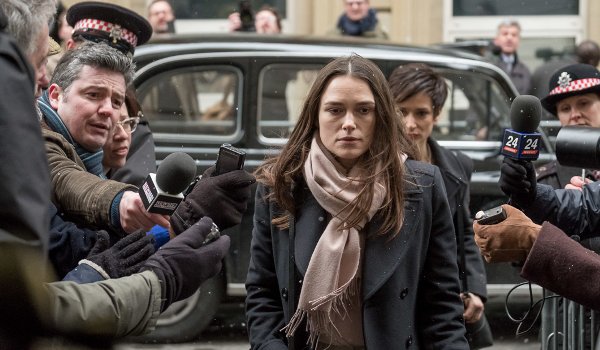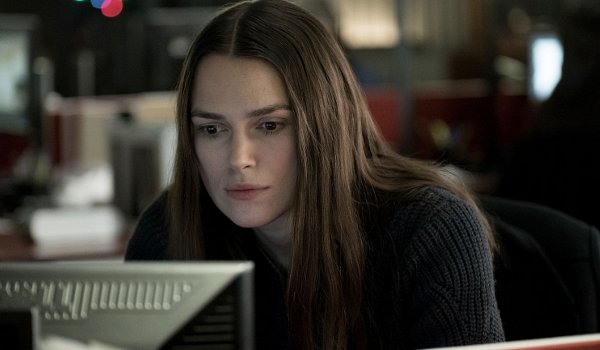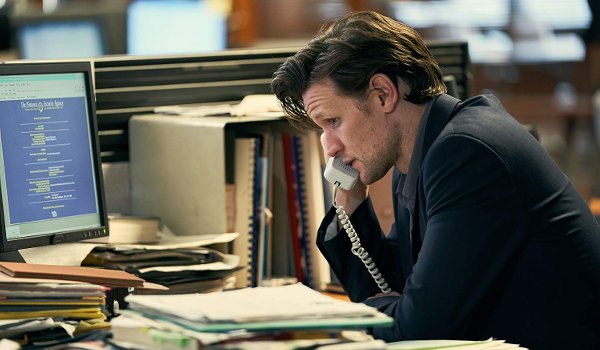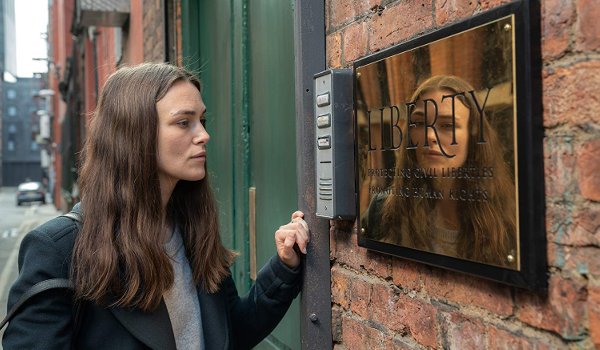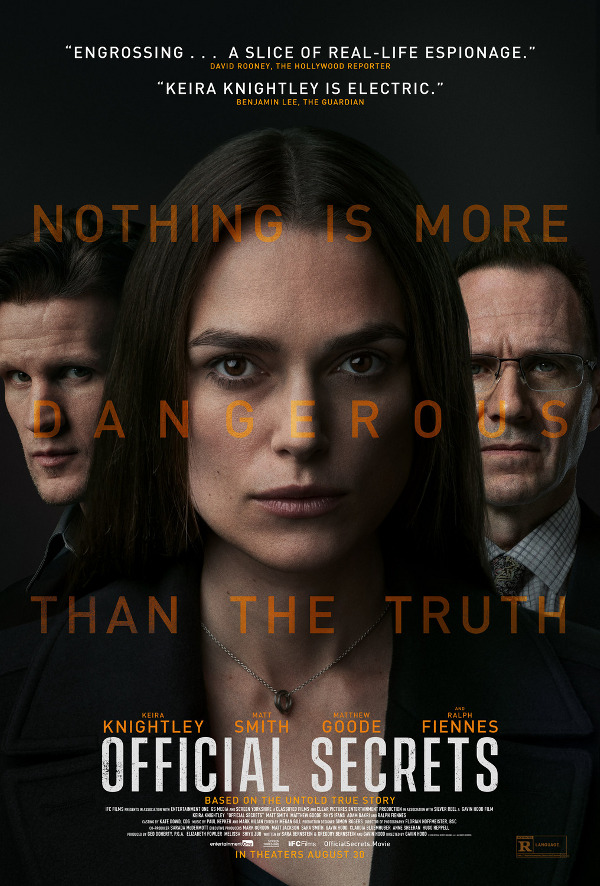- Title: Official Secrets
- IMDb: link

The world could use a few more people like Katherine Gun. Based on the true story of a British Intelligence officer discovering her government’s willingness to assist the United States in moving forward with an invasion of Iraq regardless of actual facts, director Gavin Hood‘s film stays focused on the personal cost to whistleblower Katherine Gun (Keira Knightley) as the film takes us through her discovery of a memo from the NSA asking for help blackmailing nations on the United Nations Security Council in order to rubber stamp the 2003 Iraq invasion through to her day in court a year later.
Knightley is terrific in the role of the defiant but terrified woman whose actions cause ramifications not just for herself but for her husband (Adam Bakri) who is nearly deported by a spiteful government that leaves her twisting in the wind for the better part of a year. Her supporting cast isn’t too shabby either including Matt Smith as the reporter who broke the story (but who only shares a single scene with Knightley on-screen), Rhys Ifans as another reporter on the scent, and Ralph Fiennes and Matthew Goode who emerge when the case moves to trial.
The script by Hood, Gregory Bernstein, and Sara Bernstein offers plenty of tense moments as it presents events from Katherine’s perspective and frames the story, for the most part, from her perspective of watching her government attempt to deliberately mislead the public into a war that there was little actual intelligence to justify. The tragedy to Gun’s story is that her actions didn’t prevent the war, but that doesn’t mean the effort itself was in vain (or by any means a mistake). After all, if you can’t trust the government…
The British film is likely to find a mixed reaction in the United States down partisan lines, but the concept of holding the government accountable is universal (as is the fear of governmental reprisal which is deftly handed by by Knightley’s Gun who, with nothing to gain and everything to loose, risks her life to simply tell the truth). Performances by Smith, Ifans, and other actors help frame the media’s role in bringing the story to light, just as the performances by Fiennes and others help frame the legal argument for Katherine’s actions on the larger stage. But in the end, Hood is most concerned with the moral justification of what Katherine Gun did, and for that you need look no further than Knightley who carries that burden beautifully on-screen from beginning to end. Gun’s story may have been forgotten by many, but Hood and Knightley remind us why it’s worth revisiting.
